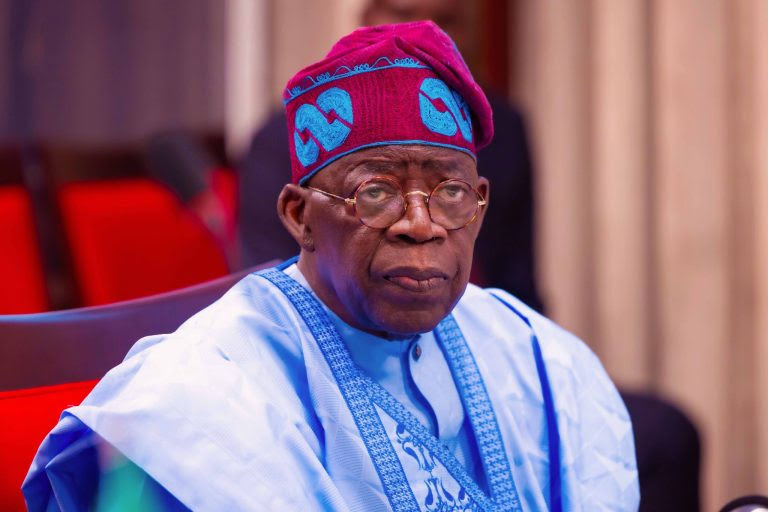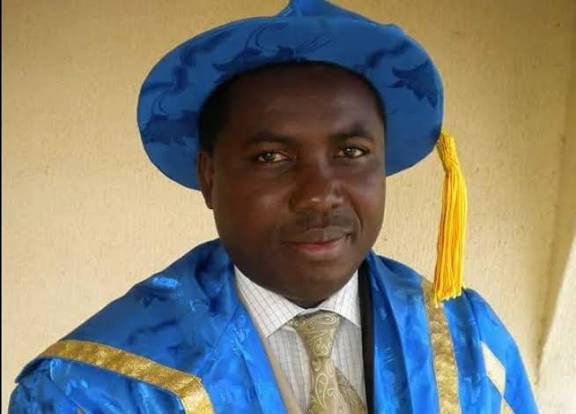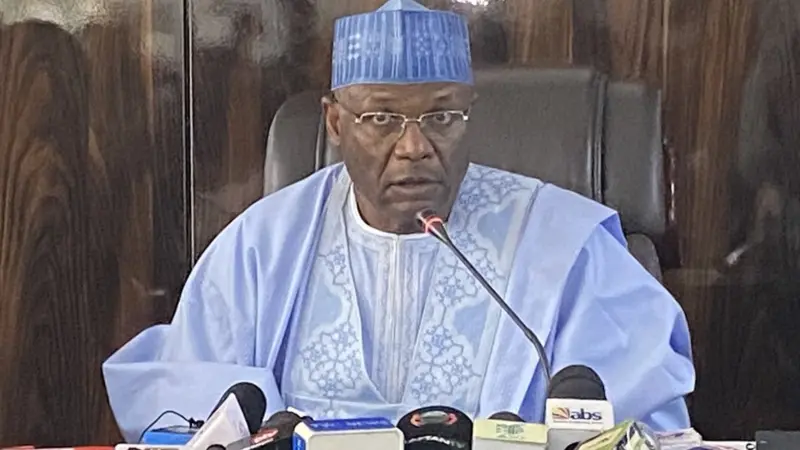
Who Will Succeed Mahmood Yakubu as INEC Chairman? Impact on Nigeria’s 2027 Elections
- Nigeria News
- 25.09.2025
- No Comment
- 33
Who Will Succeed Mahmood Yakubu as INEC Chairman? Impact on Nigeria’s 2027 Elections
By Davidson Iriekpen (Rewritten & SEO-Optimized)
Professor Mahmood Yakubu, the longest-serving Chairman of the Independent National Electoral Commission (INEC) since Nigeria’s return to democracy in 1999, is set to complete his two-term tenure next month. After 10 years at the helm, his exit marks a critical juncture for Nigeria’s democracy as the country prepares for the 2027 general elections.
Appointed by former President Muhammadu Buhari in 2015 and reappointed after his first tenure lapsed, Yakubu succeeded Professor Attahiru Jega. His leadership saw two general elections—2019 and 2023—both of which shaped the trajectory of Nigeria’s electoral process and public trust in the system.
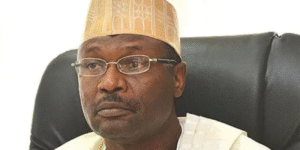
Under Yakubu’s leadership, INEC introduced major technological reforms such as the Bimodal Voter Accreditation System (BVAS) and the INEC Result Viewing Portal (IReV). These innovations raised public expectations for transparency, real-time accreditation, and instant result transmission. Many Nigerians believed the 2023 elections would mark a turning point—a digital firewall against electoral fraud and manipulation.
However, on election day, logistical delays, technical glitches, and failure of real-time uploads shattered those hopes. The credibility of the process was questioned by political parties, civil society, and citizens. Trust, the lifeblood of any democracy, was eroded within hours as accusations of bias and incompetence mounted.
Beyond the general elections, off-season polls during Yakubu’s tenure often descended into chaos. From Anambra to Kogi, Bayelsa, and Imo States, the same pattern emerged—logistical nightmares, rampant vote buying, and allegations of collusion between politicians and compromised INEC officials.
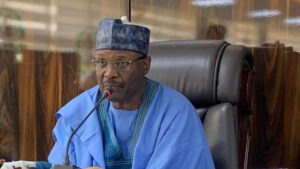
The most recent off-season elections, meant to serve as Yakubu’s farewell, were marred by confusion and violence across multiple states. Security agencies reported the arrest of hundreds of thugs and even INEC officials in incidents spanning Ogun, Kano, and Kaduna states. Despite promises of zero tolerance for malpractices, irregularities persisted.
Comparisons to other countries highlight how Nigeria’s electoral process can improve. In Ghana, Dr. Kwadwo Afari-Gyan became a continental symbol of integrity by insisting on transparency under immense political pressure. South Africa’s Independent Electoral Commission earned global respect for stabilizing democracy post-apartheid. In India, the world’s largest democracy, cutting-edge technology and ruthless enforcement of electoral laws deliver near-zero tolerance for malpractice.
In contrast, Nigeria’s innovations—BVAS and IReV—failed at the most critical hour, undermining public confidence. This raises pressing questions about whether the next INEC Chairman can restore the credibility lost under Yakubu’s watch.
With Yakubu’s departure imminent, all eyes turn to President Bola Tinubu. As the law provides, the President nominates the INEC Chairman after consulting the Council of State, and the Senate must confirm the appointment. However, given the President’s control over both the Council and the Senate majority, political influence can easily sway the process.
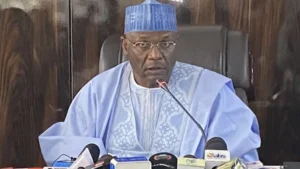
Many Nigerians are calling for the appointment of a credible, independent figure—someone with the moral courage to resist the temptations and pressures of Nigerian politics. The stakes are high: the 2027 general elections will be pivotal for Nigeria’s democratic future, and the legitimacy of the process rests heavily on public trust in INEC’s neutrality.
Stakeholders and civil society groups are urging President Tinubu to follow the example of past leaders who avoided appointing their close allies or kinsmen to the role. For instance, President Olusegun Obasanjo (South-West) appointed Abel Guobadia (South-South) and Maurice Iwu (South-East); President Goodluck Jonathan (South-South) appointed Attahiru Jega (North-West); and President Muhammadu Buhari (North-West) appointed Mahmood Yakubu (North-East).
They warn that any perception of bias—especially given Tinubu’s own re-election ambitions—could erode confidence in the 2027 elections and push Nigeria’s democracy further toward instability.
Beyond the Chairman’s appointment, there are also growing concerns about appointing card-carrying members of political parties as National Commissioners and Resident Electoral Commissioners (RECs). Section 14(2a) of the Third Schedule of the 1999 Constitution (as amended) clearly states: “A member of the commission shall be non-partisan and a person of unquestionable integrity.”
Nigerians have repeatedly witnessed biases exhibited by some INEC officials during elections, which taint the polls and embarrass the commission. Restoring trust requires appointing neutral and credible individuals at every level of the electoral body.
Democracy is not just about casting ballots; it is also about the credibility of those who manage the process. The next INEC Chairman must not only be a technocrat but also a reformer—a tireless advocate for transparency and a relentless enemy of electoral fraud.
For Nigeria’s democracy to thrive, arbiters must remain neutral, courageous, and consistent under political pressure. The 2027 elections will test whether Nigeria can build an electoral system that inspires trust and reflects the will of the people.
Ultimately, the appointment of Yakubu’s successor is more than a personnel decision; it is a referendum on the future of Nigeria’s democracy and socio-economic development. A bold, unbiased appointment can restore hope and confidence in the electoral process, while a compromised one may push Nigeria further toward the precipice.
@ Punch News. All Right Reserved

